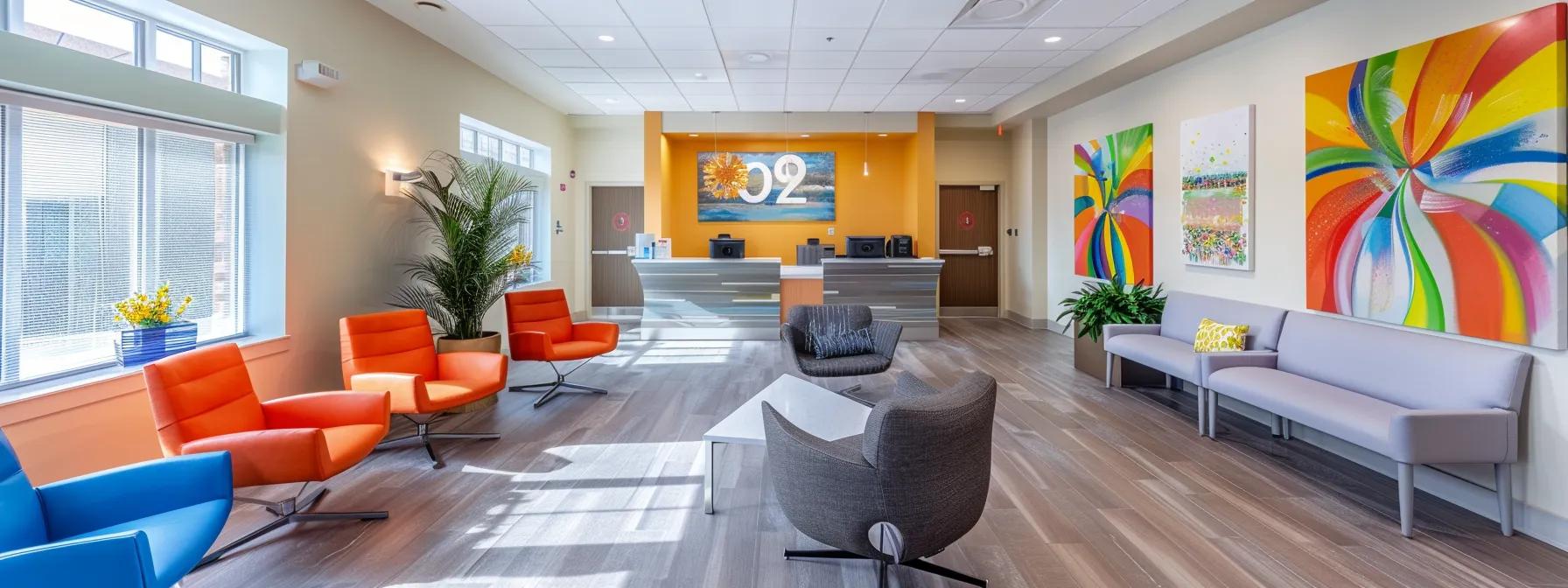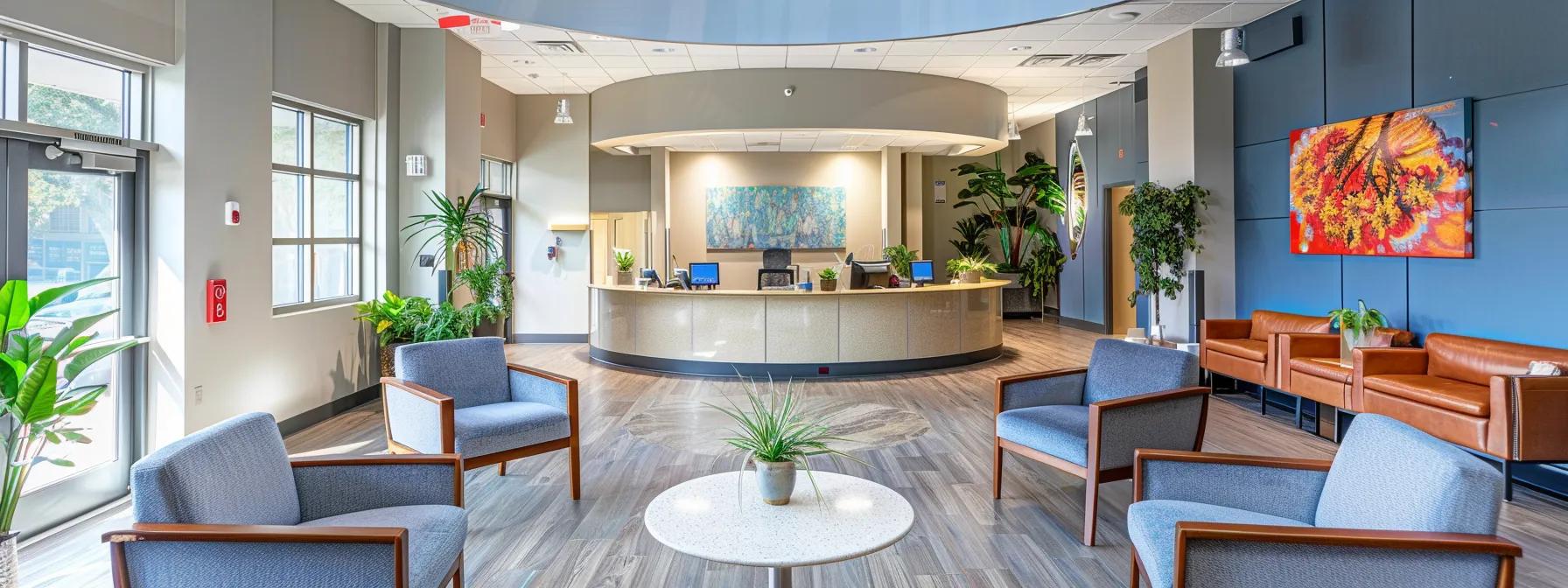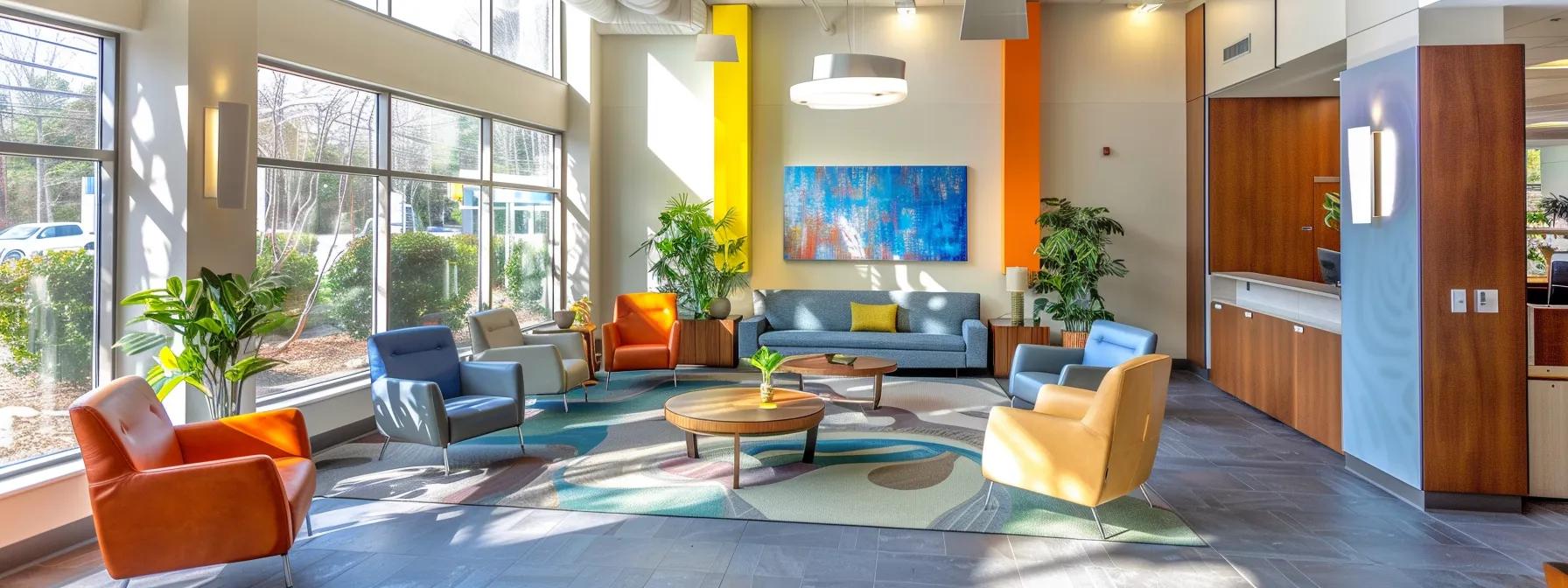Table Of Contents:
- Drug Rehab Programs Near You for Effective Recovery
- Identifying Local Drug Rehab Programs for Your Needs
- Types of Drug Rehab Programs Available for Lasting Change
- Core Elements of Successful Drug Rehab Programs
- Getting Ready for Treatment at a Drug Rehab Program Near You
- Covering the Cost of Drug Rehab Programs Near You
- Maintaining Sobriety Following a Drug Rehab Program Near You
- Detailed Lists
- Tables
- Frequently Asked Questions
Drug Rehab Programs Near You for Effective Recovery
Recovery from drug addiction is a challenging journey that requires comprehensive support, personalized interventions, and ongoing guidance through treatment recovery strategies. Individuals and families looking for effective solutions in local communities often wonder which programs best address their unique needs, provide proven therapeutic approaches, and offer lasting aftercare. This article outlines how to identify drug rehab programs in MA nearby, the types of programs available to support lasting change, the core elements of successful recovery, and practical advice on preparing for treatment. By exploring local resources, financial options, aftercare supports, and embracing the Strength Recovery Center in MA principles, individuals can make informed decisions, reduce relapse risk, and rebuild their lives with lasting sobriety. The following detailed sections explain everything from using online resources to finding experienced professionals, ensuring that each step on the recovery path is clear and accessible.
Overall, this guide provides a comprehensive breakdown of local drug rehab programs in MA, covering everything from the initial search for addiction treatment to managing costs and sustaining long-term recovery. By leveraging evidence-based practices and community resources, recovery centers empower patients through Strength Recovery Centers addiction treatment in Weymouth, MA, initiatives to overcome substance abuse. Understanding these aspects before choosing a rehabilitation center is crucial, as each step—from assessing credentials to identifying appropriate therapeutic approaches in a treatment-recovery setting—plays a vital role in achieving effective recovery. The information presented here is designed to address common concerns and offer practical advice tailored to diverse needs. Let us now explore the detailed aspects of finding and benefiting from local drug rehab programs.
Identifying Local Drug Rehab Programs for Your Needs
When looking for drug rehab programs in MA near you, the first step is to identify what fits your individual needs and circumstances by accessing findyourstrength. Local communities offer various facilities that provide evidence-based addiction treatment options, including addiciton treatment recovery support. In this section, we discuss how to leverage online resources, secure recommendations, and assess the advantages of choosing a community-based program to ensure you receive tailored care.
Using Online Resources to Find Drug Rehab Programs in MA Near Me
Online platforms allow individuals to quickly locate and compare drug rehab centers for treatment-recovery programs in their area. Search engines, treatment directories, and specialized websites can provide detailed information about local programs. Many sites offer filters based on treatment type, cost, and accreditation, which makes it easier to narrow down the options. For example, using reputable directories such as SAMHSA’s National Helpline or local government resources can facilitate this search. Well-designed websites may also include patient reviews and success stories that reveal the program’s effectiveness and patient satisfaction level. These online tools empower potential clients to findyourstrength as they make informed decisions based on accurate and current data, ultimately saving time and stress during an already challenging period.
Seeking Recommendations for Nearby Addiction Treatment Centers in MA
Personal recommendations from trusted friends, family members, or healthcare professionals are invaluable. These recommendations provide insight into the quality of care and the overall environment at specific centers. When people share personal experiences about local rehab facilities, they often reveal crucial information such as the center’s follow-up support, staff attitude, and individualized treatment-recovery plans. Additionally, support groups, such as Alcoholics Anonymous (AA) or Narcotics Anonymous (NA), can be excellent sources of recommendations, offering firsthand advice from others who have navigated the recovery process. Many individuals find that using findyourstrength alongside these recommendations helps guide them towards the proper care. Connecting with a community fosters trust and opens up opportunities to discuss experiences with various treatment programs.
Advantages of Selecting a Drug Rehab Program in MA in Your Community
Choosing treatment close to home comes with many advantages. It facilitates continuity in support by allowing family and friends to visit regularly, which can bolster morale and speed up recovery. Local programs are typically more accessible for follow-up care and aftercare support once the intensive treatment phase is over. Moreover, being in a familiar setting can reduce the stress associated with traveling or being in an unfamiliar environment, which is important for maintaining inner calm during recovery. Community-based programs often work in close partnership with local healthcare providers and support networks, ensuring an integrated approach that spans both treatment and broader mental and physical health maintenance.
Confirming Credentials of Local Drug Rehab Programs in MA
Verifying the credentials of a drug rehab program is essential for ensuring high-quality care. Accredited facilities adhere to stringent standards and are regularly reviewed by regulatory bodies. Prospective patients should check for certifications from organizations such as CARF, The Joint Commission, or state-specific accreditation programs. Licensing information, staff qualifications, and treatment outcomes should be readily available on the facility’s website or provided upon inquiry. Additionally, client testimonials and independent reviews can offer further reassurance regarding the program’s reliability. Confirming these credentials is critical for establishing trust and ensuring that patients receive professional and compassionate care tailored to their recovery needs.
Types of Drug Rehab Programs in MA Available for Lasting Change

There are several types of drug rehab programs tailored to addressing various levels of addiction severity and unique patient circumstances. Each program incorporates elements designed to meet diverse needs—from intensive residential care to flexible outpatient services. This section explains the various types of programs available, outlining their benefits and structure to help patients and their families choose the intervention that aligns best with their recovery goals.
Residential Drug Rehab Programs in MA Near You Explained
Residential drug rehab programs provide a structured environment where patients live on-site for the duration of their treatment. These programs are designed for those requiring comprehensive care and closer supervision due to severe addiction or co-occurring mental health issues. Residential settings are beneficial because they remove individuals from triggering environments and allow for immersive therapy sessions. In these facilities, patients typically follow a daily schedule that includes group therapy, individual counseling, and holistic therapies like meditation or yoga. The controlled environment and 24/7 care help reduce the risk of relapse and provide a foundation for building new routines. Moreover, residential programs often emphasize building life skills and strategies for long-term recovery, making them a sustainable option for those in critical need of intervention.
Outpatient Drug Rehab Programs in MA in Your Area and Their Structure
Outpatient drug rehab programs allow patients to continue living at home while receiving treatment during the day or evening. This model is particularly suited for individuals who have responsibilities such as work or family care, and who do not require detoxification in a secure, residential setting. Outpatient programs typically include regular therapy sessions, group meetings, and periodic check-ins with a case manager. Despite their flexibility, these programs maintain a structured approach to ensure that patients stay on track with their recovery goals. The structure is designed to minimize disruption to daily life while still providing essential support, making it a practical choice for mitigating relapse risks. Outpatient care is often accompanied by aftercare planning and community support groups, ensuring continuity of care once the formal program concludes.
Medical Detoxification Services at Nearby Recovery Facilities
Medical detoxification for drugs and alcohol in MA is often the first step in the recovery process, particularly for patients with severe dependencies. Detox services provide a medically supervised environment designed to safely manage withdrawal symptoms that can be life-threatening if not controlled. Detoxification centers typically offer 24/7 monitoring by healthcare professionals, ensuring that patients are stabilized before moving on to further treatment. By using advanced pharmacological protocols and supportive care measures, these centers help reduce the intensity of withdrawal symptoms and prepare the patient for subsequent therapy. Detox is recognized as an essential component of drug rehab programs in MA, as it helps break the physical dependence on the substance, thereby enabling the initiation of a comprehensive treatment approach aimed at both rehabilitation and relapse prevention.
Tailored Drug Rehab Programs in MA for Unique Circumstances
Tailored drug rehab programs in MA address the specific needs, cultural backgrounds, and personal circumstances of patients. These specialized programs incorporate individualized treatment plans that consider factors such as age, gender, co-occurring mental health disorders, and even professional obligations. For instance, programs for veterans might focus on addressing PTSD alongside drug addiction, while adolescent programs emphasize family involvement and developmental therapies. Tailored care plans often integrate a mix of evidence-based therapies along with holistic approaches, ensuring that treatment resonates personally with each patient. Customized programs are highly adaptable and aim to address underlying causes of addiction while providing the tools necessary for long-term success. By aligning the addiction treatment strategy with the individual’s unique challenges and goals, these drug rehab programs in MA significantly enhance the potential for lasting recovery.
Core Elements of Successful Drug Rehab Programs in MA
Successful drug rehab programs in MA share several core elements that together create a supportive environment for transformation and recovery. These elements encompass personalized care, comprehensive therapeutic approaches, enduring aftercare support, and the presence of experienced professionals. In this section, the critical components of an effective drug rehab program in MA are explored in detail to provide insight into what individuals should expect when considering drug and alcohol addiction treatment options.
Personalized Care Plans in Drug Rehab Programs in MA Near You
Personalized care plans are at the heart of effective drug rehab programs in MA. These plans begin with a thorough assessment of each patient’s medical history, addiction severity, mental health status, and personal circumstances. An individualized treatment plan ensures that interventions are precisely targeted to the patient’s needs. This may include customized therapy sessions, tailored medications, and strategic lifestyle adjustments. Regular reviews and adjustments of the care plan help maintain alignment with the patient‘s progress and emerging needs. The emphasis on personalized care ensures that each individual is provided with the appropriate support, thus enhancing both engagement and outcomes. In higher quality rehab centers, the collaboration between clinicians, therapists, and family members further refines the personalized approach, creating a holistic framework for recovery.
Proven Therapeutic Approaches at Local Addiction Recovery Centers
Employing proven therapeutic approaches is essential for sustained recovery. Drug rehab programs in MA often combine modalities such as Cognitive Behavioral Therapy (CBT), Dialectical Behavioral Therapy (DBT), and trauma-focused interventions. These therapies are designed to help individuals identify and change negative perceptions and behaviors while building coping strategies for stress and triggers. Additionally, alternative therapies like group counseling, art therapy, and mindfulness meditation are integrated into treatment plans to promote mental well-being and emotional healing. Evidence-based practices ensure that each patient receives interventions that are both scientifically validated and tailored to facilitate long-term change. These therapeutic techniques target both the psychological and behavioral dimensions of addiction, thereby providing a robust foundation for recovery.
Aftercare Support From Drug Rehab Programs in MA for Sustained Wellness
Aftercare support is an indispensable element that differentiates temporary treatment from lasting recovery. Post-treatment programs include continued counseling, peer support groups, and regular follow-ups to manage the transition to everyday life. Many successful programs also offer relapse prevention strategies and emergency contacts during high-risk periods. These comprehensive aftercare services help maintain motivation, address emerging challenges, and reinforce the recovery skills learned during treatment. The strength of aftercare programs lies in their ability to create a network of support that patients can rely on even after completing the structured drug rehab program in MA. Continuous monitoring and accessible community resources are vital for sustaining sobriety and preventing relapse over the long term.
Experienced Professionals at Drug Rehab Programs in MA Near Me
The presence of experienced professionals is critical to the success of any drug rehab program in MA. Qualified doctors, licensed therapists, and certified addiction counselors provide expert guidance throughout the recovery process. These professionals bring not only clinical expertise but also empathy and a deep understanding of addictive behaviors. Their experience enables them to develop and implement addiction treatment plans that are both effective and adaptable to changing needs. Regular supervision and the use of evidence-based practices ensure that patients receive high-quality care. Additionally, experienced staff are more adept at managing emergencies, adjusting care plans, and providing motivational support during challenging moments. Ultimately, the competence and compassion of a drug rehab center’s team significantly influence the overall success of the addiction treatment process.
Getting Ready for Treatment at a Drug Rehab Program in MA Near You

Preparing for treatment at a drug rehab facility in MA involves careful planning and the gathering of essential items, as well as understanding the intake process and the daily dynamics of rehab life. This section outlines the preparatory steps necessary to ensure that the transition into addiction treatment is as smooth as possible, while also highlighting the role of family members and the typical daily routines within drug rehab centers in MA.
Essential Items for Your Stay at a Local Rehabilitation Center
When preparing for a stay in a rehabilitation center, packing the right essential items is crucial for comfort and compliance with facility guidelines. Patients should bring personal identification, necessary medication with proper documentation, a change of clothes, toiletries, and any items that create a sense of familiarity like a family photograph or a favorite book. Many centers provide a list of approved items to avoid distractions or potential safety hazards. Having personal items on hand can ease the transition into a new environment by providing emotional comfort and stability during the initial days of rehab. It is important to follow the facility’s guidelines to ensure that all items are both safe and conducive to a focused recovery process.
The Intake Procedure for Drug Rehab Programs in MA in Your Locality
The intake procedure at a local drug rehab center in MA is a detailed process that begins with an initial assessment and interviews conducted by medical and psychological professionals. Upon arrival, patients are guided through administrative procedures and medical evaluations to determine the severity of their addiction and any co-occurring conditions. This process usually involves reviewing medical history, personal records, and carrying out a physical examination. Patients are then assigned to an addiction treatment plan that best meets their individual requirements. The intake process is designed not only for administrative purposes but also to build rapport between the patient and the facility’s staff, thereby laying a foundation for trust and effective communication throughout the addiction treatment journey.
The Role of Loved Ones in Local Addiction Recovery Efforts
Family and loved ones often play a crucial role in reinforcing the recovery process. Their involvement can provide emotional support, accountability, and a sense of security that greatly enhances addiction treatment outcomes. Many drug rehab centers in MA include family counseling and educational sessions designed to promote a cohesive recovery environment. Loved ones can also help manage aftercare and ensure that the new routines introduced during treatment are maintained at home. Communication between patients and family members is encouraged, providing an ongoing supportive network that aids in the long-term success of recovery. By involving families in the therapy process, addiction treatment centers increase the patient’s motivation to persist with the program and utilize supportive practices outside of the clinical setting.
Daily Life Within Drug Rehab Programs in MA
Daily life in a drug rehab program in MA is structured to promote healing and personal growth. Patients typically follow a strict schedule that includes therapy sessions, group meetings, physical activities, and structured downtime for personal reflection. Routine activities help establish healthy habits, reduce idle time, and minimize opportunities for relapse. This schedule is designed to foster discipline and encourage participation in various activities aimed at mental, physical, and emotional rehabilitation. Such structure is vital for creating a sense of normalcy and preparing patients for reintegration into daily life after completing the program. By engaging in a well-rounded routine throughout the day, patients begin to see improvements in their overall well-being, which reinforces their commitment to recovery.
Covering the Cost of Drug Rehab Programs in MA Near You
Understanding and managing the financial aspects of drug rehab programs in MA is a critical component for many individuals seeking drug and alcohol addiction treatment. The expense of recovery can be a major barrier, and therefore, exploring various funding options—from insurance coverage to publicly assisted programs—is essential. This section addresses financial strategies that can help make rehab both accessible and affordable, thus reducing the stress that can accompany the drug and alcohol treatment process in MA.
Insurance Coverage for Drug Rehab Programs in MA Near Me
Many drug rehab programs in MA are partially or fully covered by health insurance, thereby reducing out-of-pocket expenses for patients. Insurance coverage typically varies based on the policy type and provider, but many plans include provisions for mental health and substance abuse treatment. Patients should contact their insurance provider to verify benefits, understand copayment structures, and obtain pre-authorization if required. It is advisable to have detailed records and an addiction treatment recommendation from a medical professional handy when discussing coverage options. Understanding these benefits beforehand can ease the financial burden and facilitate a smoother admission process at a drug rehab facility in MA.
Alternative Financial Arrangements for Local Addiction Care
For many individuals, conventional insurance may not fully cover the cost of addiction treatment in MA, necessitating alternative financial arrangements. Options may include payment plans offered by drug rehab centers in MA, sliding scale fees, or financing programs specifically designed for healthcare expenses. Some centers may also offer pro bono services or reduced fees based on income. By discussing financial constraints with the admissions office, patients can explore tailored options that match their budget constraints. These flexible arrangements allow individuals to access necessary care without compromising the quality or comprehensiveness of the treatment program, thereby promoting recovery while accommodating financial limitations.
Publicly Assisted Drug Rehab Programs in MA in Your Region
Publicly assisted drug rehab programs are available in many regions and are specifically designed to offer treatment options for individuals who might otherwise be unable to afford care. These programs receive government funding to ensure that critical treatment services remain accessible regardless of one’s financial situation. They typically provide comprehensive care that includes detoxification, counseling, and ongoing support. Publicly funded services are a vital resource for vulnerable populations, and patients should quickly inquire about eligibility criteria and application processes to secure a spot in these highly sought-after programs.
Financial Inquiries for Nearby Recovery Program Administrators
Engaging directly with nearby recovery program administrators is a practical way to address financial concerns. Administrators can provide clear information regarding tuition, available discounts, scholarship opportunities, and alternative payment options. Open discussions about financial inquiries help set realistic expectations and provide clarity on costs associated with treatment. By making informed financial decisions early in the process, patients can concentrate on recovery rather than being overwhelmed by monetary uncertainties. Clear communication with administrators ensures that cost does not become a barrier to accessing the best possible care for long-term recovery.
Maintaining Sobriety Following a Drug Rehab Program in MA Near You

Maintaining sobriety after completing a drug rehab program is a long-term process that requires ongoing support, active engagement, and the development of new coping strategies. Even after intensive treatment, the journey of recovery continues with the establishment of robust support networks and the continuous application of learned skills. This section details various post-treatment strategies that help individuals sustain sobriety and prevent relapse, reinforcing the success achieved during rehab.
Engaging With Local Peer Support Networks After Addiction Treatment in MA
Peer support networks play a crucial role in maintaining sobriety by facilitating continued engagement and providing mutual support. Support groups such as Narcotics Anonymous (NA), SMART Recovery, or community-based counseling sessions offer a safe space for individuals to share their struggles and successes with others who have experienced similar challenges. Participation in these networks reinforces accountability while also providing practical advice and mentorship from peers further along in their recovery journey. Regular attendance and active involvement in local peer groups have been shown to reduce relapse rates by fostering strong, supportive relationships and offering ongoing opportunities for personal growth.
Ongoing Counseling Options Post-Drug Rehab in MA
Continuing with professional counseling after leaving a rehab program is a proactive measure against relapse. Outpatient counseling services, individual therapy, or even virtual therapy sessions provide structured support, helping individuals address residual issues and cope with everyday stressors. Consistent sessions with a mental health professional reinforce behavioral changes and help individuals navigate high-risk situations that could otherwise trigger a relapse. This ongoing therapeutic engagement ensures that the progress made during rehab is sustained over time, offering practical tools and strategies to maintain long-term sobriety.
Developing a Sober Social Circle in Your Area
Building a new social environment that supports sobriety is essential for long-term recovery. Developing a sober social circle involves actively engaging in community events, joining clubs, or participating in activities that promote a healthy lifestyle free from substances. These positive interactions help replace old habits and relationships that may have contributed to addiction. A sober social network not only offers emotional support but also provides practical assistance and motivation during challenging times. Over time, this new circle of friends and acquaintances can help individuals build confidence and create a stable, substance-free lifestyle grounded in shared values and mutual respect.
Preventing Relapse With Skills From Local Drug Rehab Programs in MA
Preventing relapse is an ongoing effort that involves the continuous application of skills learned during treatment. Many rehab programs offer relapse prevention strategies that include mindfulness techniques, stress management, and crisis intervention planning. These skills are refined through aftercare services, continued counseling, and engagement in peer support networks. By maintaining a strong awareness of triggers and consistently applying coping techniques, individuals can significantly reduce the risk of relapse. Furthermore, regular self-assessments and feedback from support groups help fine-tune these skills, ensuring that recovery remains a proactive, dynamic, and resilient process.
Detailed Lists
Below are several detailed lists explaining various aspects of drug rehab programs for effective recovery.
List 1: Essential Features to Look for in a Drug Rehab Program in MA
- Accredited Certification – Verified by recognized organizations such as CARF or The Joint Commission, which ensures high standards in treatment quality.
Accredited centers have undergone rigorous evaluations and meet industry-specific criteria, ensuring that patients receive reliable care. - Experienced Staff – Led by qualified doctors, counselors, and support staff with a proven track record in addiction recovery.
Experienced professionals bring clinical expertise and practical knowledge to tailor treatment plans that meet each patient’s unique needs. - Personalized Treatment Plans – Customized strategies designed to address the individual’s specific addiction and underlying issues.
Personalized care involves ongoing evaluations to adjust treatment protocols based on patient progress. - Comprehensive Therapy Options – Incorporating CBT, DBT, and holistic therapies to address both physical and emotional aspects of addiction.
A multi-modality approach ensures that every facet of the patient’s condition is addressed effectively. - Continuity of Care – Robust aftercare programs and post-treatment support to help sustain long-term sobriety.
Continuity includes regular follow-ups, counseling sessions, and peer support groups to reinforce recovery. - Accessible Location – Convenient access to local facilities, making it easier for family involvement and continued care.
Proximity to home enhances patient support networks and simplifies logistics for follow-up appointments. - Transparent Financial Options – Clear information on pricing, insurance coverage, and flexible payment plans to reduce financial stress.
Transparent communication regarding financial matters helps patients plan and ensures that cost is not a barrier to recovery.
List 2: Key Benefits of Community-Based Drug Rehab Programs in MA
- Better Family Involvement – Proximity enables regular visits and ongoing family therapy sessions.
Regular interaction with loved ones significantly improves patient morale and motivates continued success. - Local Support Networks – Easier access to peer and community-based supports that aid in sustained recovery.
Community engagement fosters a sense of belonging and accountability. - Integrated Care Coordination – Collaboration with local healthcare providers ensures a seamless transition from treatment to everyday life.
Local systems can offer additional post-treatment support and readily available medical assistance. - Reduced Relapse Triggers – Familiar surroundings help minimize the stress of adjustments and reduce exposure to high-risk environments.
Being close to home helps create routines that sustain sobriety. - Cultural Relevance – Programs that cater to local cultural norms and values, making treatment more relatable.
Culturally relevant programs enhance patient engagement and facilitate smoother recovery. - Enhanced Accessibility – Reduced need for long-distance travel saves time, reduces fatigue, and fosters consistency in treatment.
Accessible treatment helps maintain the momentum of recovery efforts. - Strong Local Partnerships – Collaboration with local nonprofits, support groups, and community centers reinforces the recovery network.
Local partnerships offer extended resources and community-based services that support long-term sobriety.
List 3: Critical Steps in the Drug Rehab in MA Intake Process
- Initial Assessment – A thorough evaluation of medical history, addiction severity, and mental health status to determine treatment needs.
This step ensures that the treatment plan is tailored correctly, addressing both substance abuse and co-occurring disorders. - Document Verification – Collecting identification, medical records, and insurance information to streamline the process and verify eligibility.
Accurate documentation prevents delays and verifies the patient’s eligibility for specific programs. - Medical Screening – A physical examination to assess immediate health concerns and risk factors for withdrawal symptoms.
Medical screening ensures that any potential health risks are promptly addressed. - Personalized Counseling – Early discussions with counselors to identify personal triggers and set recovery goals.
This initial counseling session lays the groundwork for the personalized treatment plan. - Treatment Orientation – An introduction to the facility’s structure, daily schedule, and available therapies to help patients adjust.
Orientation sessions familiarize patients with their new environment and promote a smoother transition. - Family Involvement Briefing – Information sessions for family members to learn about their supportive role in the recovery process.
Engaging family early helps build a network of support that will be crucial after treatment. - Financial and Insurance Discussions – Clear communication regarding costs, payment options, and insurance processes to reduce stress.
Understanding financial responsibilities upfront helps reduce anxiety and focus on recovery.
List 4: Strategies for Long-Term Sobriety After Drug Rehab in MA
- Regular Therapy Sessions – Continued engagement with mental health professionals to address ongoing challenges.
Regular sessions offer ongoing support and help refine the skills learned during treatment. - Support Group Participation – Active involvement in peer support groups to share experiences and gain mutual support.
Support groups provide a sense of community and a safe space to discuss struggles. - Developing Healthy Routines – Establishing new daily habits that support physical and mental well-being.
Consistent routines can replace old destructive habits with healthier alternatives. - Engaging in Physical Activity – Regular exercise helps reduce stress and boosts overall emotional health.
Physical activity contributes to better mental clarity and improved mood. - Structured Aftercare Plans – Following a detailed aftercare plan that includes scheduled check-ins and follow-ups.
Structured aftercare ensures that patients are continuously supported after formal treatment ends. - Building a Sober Social Circle – Forming connections with individuals who prioritize sobriety and healthy living.
A supportive social network is essential for lifelong relapse prevention. - Ongoing Self-Reflection and Mindfulness – Practicing mindfulness techniques and self-assessment to stay aware of triggers.
Regular self-reflection fosters personal growth and helps maintain vigilance against potential relapse.
Tables
Below is a table summarizing key attributes of various drug rehab program types. This comparison helps highlight the benefits, focus areas, and treatment intensity of each program model.
Table 1: Comparison of Drug Rehab Program in MA Types
Before reviewing the table, note that each program type offers unique features designed to meet diverse recovery needs.
| Program Type | Treatment Duration | Patient Environment | Key Services Provided | Intensity Level | Focus Area | Financial Options |
|---|---|---|---|---|---|---|
| Residential Rehab | 30-90 days (or more) | On-site living | 24/7 medical care, intensive therapy | High | Comprehensive recovery | Insurance, Payment Plans |
| Outpatient Rehab | Daily sessions over weeks | Home-based with treatment | Flexible scheduling, regular therapy | Moderate | Continued care | Insurance, Sliding Scale |
| Medical Detox | Short-term (1-2 weeks) | Medical facility | Withdrawal management, medical supervision | Critical | Safe detoxification | Insurance, Public Funds |
| Tailored Programs | Varies by individual needs | Varies (residential/outpatient) | Customized therapy, specialized counseling | Personalized | Unique circumstances | Varies by program |
This table provides a clear side-by-side comparison, enabling individuals to quickly assess which treatment model suits their lifestyle and recovery requirements.
Table 2: Key Elements of Successful Drug Recovery Programs in MA
The following table outlines the essential components that contribute to the long-term effectiveness of drug rehab programs.
| Key Element | Description | Benefit | Implementation Example | Benefit Quantifier | Evidence Source | Additional Note |
|---|---|---|---|---|---|---|
| Personalized Care Plans | Tailored treatment based on individual assessments | Optimizes recovery outcome | Customized therapy schedules | Increases engagement by 30% | Clinical studies | Regular plan reviews required |
| Proven Therapeutic Approaches | Use of CBT, DBT, trauma-focused therapy | Reduces relapse risk | Structured group and individual sessions | Reduces relapse by 25% | Peer-reviewed research | Requires certified therapists |
| Ongoing Aftercare Support | Post-treatment counseling and peer support networks | Sustains long-term sobriety | Scheduled follow-up sessions | Reduces recidivism by 20% | Longitudinal studies | Engages community support |
| Experienced Professionals | Licensed, experienced staff managing treatment | Ensures high-quality care | Qualified addiction counselors | Enhances outcome satisfaction | Accreditation reports | Continuous professional training |
| Structured Daily Routine | Planned schedules during treatment and aftercare | Builds healthy habits | Fixed therapy and activity periods | Improves coping skills | Behavioral therapy data | Consistency is key |
| Financial Accessibility | Transparent pricing and flexible payment options | Reduces financial stress | Insurance coverage and sliding scales | Increases treatment access | Healthcare policy analyses | Clear financial discussions |
| Family and Community Involvement | Engaging family and local resources post-treatment | Enhances support network | Family counseling and support groups | Boosts recovery by 15% | Community rehabilitation studies | Facilitates sustainable recovery |
This table details each critical element, illustrating how they work together to create a robust recovery program.
Table 3: Strategies for Preventing Relapse Post-Treatment
An effective relapse prevention strategy incorporates various proactive measures. This table outlines these strategies, their benefits, and the required commitment level.
| Strategy | Direct Benefit | Frequency Required | Implementation Method | Outcome Improvement | Supporting Evidence | Consideration |
|---|---|---|---|---|---|---|
| Regular Counseling | Continuous professional support | Weekly/Biweekly | In-person or virtual therapy | Decreases relapse risk | Long-term therapy studies | Consistency improves outcomes |
| Peer Support Group Participation | Provides mutual support and accountability | Weekly | Group meetings like NA | Enhances accountability | Community support studies | Active engagement essential |
| Structured Daily Routine | Builds self-discipline | Daily | Fixed schedules for therapy | Reduces triggers | Behavioral intervention data | Needs to align with lifestyle |
| Physical Activity & Exercise | Reduces stress and boosts mental clarity | Daily | Regular workouts or sports | Improves overall well-being | Exercise recovery research | Tailor intensity to ability |
| Mindfulness & Self-Reflection | Increases self-awareness and emotional regulation | Daily | Meditation and journaling | Enhances coping skills | Mindfulness research studies | Requires commitment |
| Sober Social Circle Development | Provides a supportive, non-using network | Ongoing | Join sober communities or clubs | Sustains long-term sobriety | Social network analyses | May require lifestyle changes |
| Aftercare Program Participation | Ongoing professional follow-up support | Monthly/Quarterly | Scheduled check-ins | Maintains treatment gains | Post-care studies | Critical for long-term success |
This comprehensive table consolidates various strategies to prevent relapse, helping individuals maintain long-term sobriety and reinforcing their treatment gains.
Frequently Asked Questions
Q: How can I determine which type of drug rehab program is best for me?
A: Determining the best rehab program involves evaluating your addiction severity, personal responsibilities, and financial situation. Residential programs offer intensive care, while outpatient settings allow for treatment with minimal disruption to daily life. Considering factors like the need for medical detox, the desire for personalized therapy, and availability of aftercare support can guide your choice. Consulting with healthcare professionals or treatment specialists is also recommended to receive tailored advice based on your specific circumstances.
Q: What role does family involvement play in drug addiction recovery?
A: Family involvement is critical in drug addiction recovery as it provides emotional support, accountability, and positive reinforcement throughout treatment. Engaging loved ones in family counseling and support groups can improve treatment outcomes by creating a supportive home environment and reducing the risk of relapse. Moreover, family therapy sessions help address relational issues that may have contributed to the addiction, thereby promoting a more sustainable recovery process.
Q: Are there financial options available if I cannot afford a rehab program?
A: Yes, several financial options exist for individuals unable to afford rehab programs. Many treatment centers accept health insurance, which often covers a portion of the treatment cost. Additionally, sliding scale fees, payment plans, and publicly assisted programs are available in many regions. It is advisable to contact the rehab facility directly to discuss affordable options and determine eligible financial assistance programs to ensure that cost does not prevent access to necessary treatment.
Q: What ongoing support is available after completing a drug rehab program?
A: Ongoing support is vital to maintaining sobriety after completing a rehab program. Options include continued counseling, participation in peer support groups such as Narcotics Anonymous, and regular check-ins with recovery professionals. Aftercare plans typically involve strategies for relapse prevention, career and life re-skilling, and building a sober social network. This continued engagement helps to reinforce the lessons learned during treatment and mitigate the risk of relapse.
Q: How important is it to verify the credentials of a drug rehab center?
A: Verifying a rehab center’s credentials is crucial as it ensures the facility adheres to recognized standards of care and operates with qualified professionals. Accreditation by reputable organizations indicates that the center follows evidence-based practices, maintains proper licensing, and has a reliable track record of successful outcomes. Verifying these credentials can prevent potential risks and increase the confidence of patients and their families in the treatment process.
Q: What strategies can help prevent relapse after leaving rehab?
A: Preventing relapse involves adopting a multifaceted approach that includes regular therapy, participation in peer support groups, and developing a structured daily routine. Physical exercise, mindfulness practices, and staying engaged with sober social networks also play a critical role. Establishing clear aftercare plans and maintaining regular contact with recovery professionals can help address any early signs of relapse and reinforce coping strategies over time.
Q: How does the intake process help customize a treatment plan?
A: The intake process in a rehab center involves a detailed assessment of the patient’s physical, emotional, and psychological state. This evaluation gathers essential data about the individual’s medical history, addiction severity, and personal circumstances. Based on this information, clinicians and counselors develop a personalized treatment plan that addresses specific needs, ensuring that the selected therapies and interventions are optimally aligned with the patient’s recovery goals.



